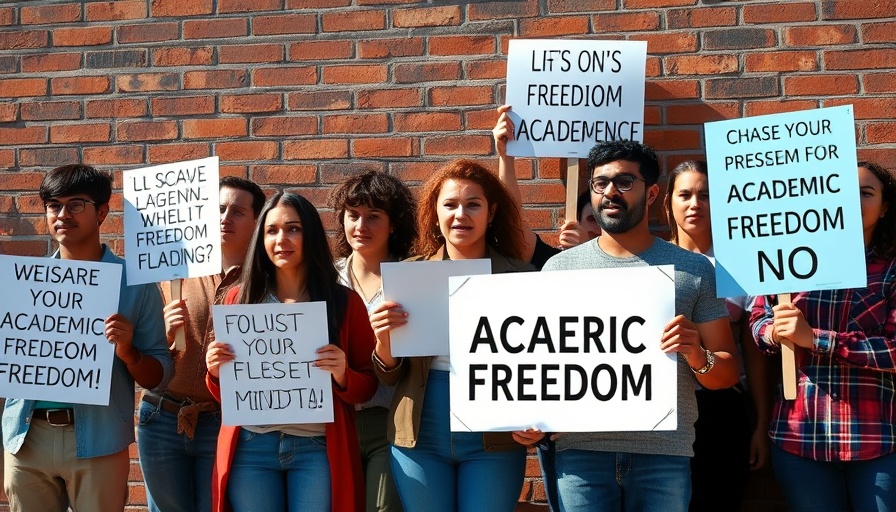
Harvard's Legal Fight: A Clash of Ideals and Funding
BOSTON — In what could be a landmark case for higher education, Harvard University faced off against the Trump administration in federal court on July 21, 2025. The prestigious institution is challenging the legality of $2.6 billion in federal funding cuts that the government imposed as part of a broader political strategy, viewing Harvard as a 'hotbed' for liberalism and antisemitism. This confrontation marks a significant moment not just for Harvard, but for universities across the nation as they navigate funding amidst political pressures.
The Stakes Involved: Research and Career Implications
The consequences of these funding cuts extend far beyond mere financial figures. Harvard's attorney, Steven Lehotsky, emphasized at the hearing that these cuts threaten to dismantle critical research operations, jeopardizing careers and endangering hundreds of scientific and medical projects reliant on federal support. The university’s push for restoration of these funds underscores a fight for autonomy in research and academic freedom, liberties that many fear could be compromised under government scrutiny.
A Government Defense: Prioritizing Protection Against Antisemitism
On the opposite end, government lawyer Michael Velchik justified the funding cuts by asserting that they align with the administration's priorities, specifically an executive order aimed at combating antisemitism. He argued that the federal funding was withdrawn due to ongoing antisemitic incidents on campus, a claim fiercely contested by Harvard’s legal team. Judge Allison Burroughs, presiding over the case, challenged the validity of these claims, prompting a discussion about the limits of governmental control over academic institutions.
Looking Ahead: The Broader Implications for Higher Education
This legal battle signifies more than just a funding dispute. Its outcome could redefine the relationship between universities and federal funding in the United States. Harvard's case might set a precedent for how institutions handle political challenges and governmental demands. As the hearing unfolds, administrators at universities nationwide are closely monitoring developments, aware that the stakes can directly impact academic freedoms and operational independence.
Conclusion: A Call for Support
As the landscape of higher education continues to shift amidst political pressures, it’s essential for the community and stakeholders to remain engaged and informed about these developments. If you value the role of universities in fostering free thought and research, consider advocating for policies that support academic freedom. The fight at Harvard could echo significant changes across all higher education institutions.
 Add Row
Add Row  Add
Add 




Write A Comment